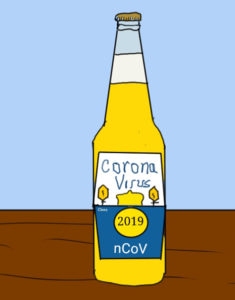by Steven H. Miles, MD
In the face of the COVID-9 pandemic, many bioethicists are turning their attention to scholarship of triage ethics. Some focus on technology, i.e., the commandeering or allocating of mechanical ventilators or extracorporeal membrane oxygenators (ECMO). Others focus on patients, i.e., who shall be given most or least priority for health care resources in dire scarcity? Implicit in all triage proposals is the potential for Conflicts of Commitment.
There are nuanced differences between a Conflicts of Commitment and a Conflict of Interest. The latter is usually thought of in monetary terms, for example a person who stands to gain a financial advantage (or avoid a loss) by influencing a policy decision in which that incentive is not known to be bearing on their exercise of authority or expertise. Financial conflicts of interests can be quantified and/or punished with monetary metrics. Non-monetary Conflicts of Commitment are more difficult to assess.
 A Conflict of Commitment tends to be understood as one in which personal non-monetary interests affect decisions. For example, there might be a faculty member participating in the college admissions decision for their daughter. At their core, such conflicts are tests of virtue and character. Issues of character and integrity haunt proposals for triaging technology or sick patients during a time of pandemic or dire scarcities of medical resources. Bioethicists are relatively privileged. They are insured, affiliated with prestigious institutions, and understand how to advocate on behalf of their interests and the interests of their loved ones.
A Conflict of Commitment tends to be understood as one in which personal non-monetary interests affect decisions. For example, there might be a faculty member participating in the college admissions decision for their daughter. At their core, such conflicts are tests of virtue and character. Issues of character and integrity haunt proposals for triaging technology or sick patients during a time of pandemic or dire scarcities of medical resources. Bioethicists are relatively privileged. They are insured, affiliated with prestigious institutions, and understand how to advocate on behalf of their interests and the interests of their loved ones.
Professing personal values for future health care decision is the core idea behind Advance Directives. Bioethicists making proposals for triage should be willing to articulate a Triage Advance Directive: It would affirm the authors’ acceptance of duly enacted triage public policies for themselves. It would assert that they are willing to advocate compliance to those standards to their parents and other loved ones. And, it would avow that they would refrain from using their position or influence to secure exceptions to triage proposals that they have supported for their loved ones. It may even be useful for medical and ethics journals to require a statement by authors of triage articles in which they would agree to support such medical care for themselves and their loved ones. Such a statement of integrity might even help mobilize public support for triage proposals.